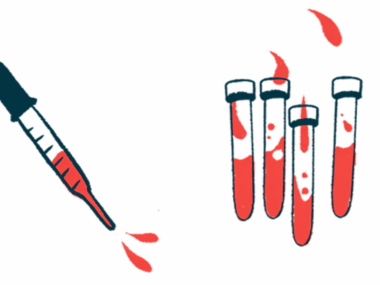FDA Decision Expected in Early 2023 on Hem A Gene Therapy Roctavian
Gene therapy would be 1st approved in US for severe hemophilia A
Written by |

The U.S. Food and Drug Administration (FDA) has accepted a resubmitted biologics license application (BLA) from BioMarin Pharmaceutical requesting approval of the gene therapy Roctavian (valoctocogene roxaparvovec) to treat adults with severe hemophilia A.
The FDA is now expected to decide by the end of March 2023 on whether or not to approve Roctavian for use in the U.S. The regulatory agency has not communicated any plans to hold an advisory committee meeting, according to BioMarin.
If approved, Roctavian would become the first gene therapy in the country for treating severe hemophilia A.
“We look forward to working closely with the agency on our application for this potentially transformative therapy,” Hank Fuchs, MD, BioMarin’s president of worldwide research and development, said in a company press release.
The target action date for the FDA decision is set for March 31 of next year, BioMarin said.
“While we recognize the potential for the agency to extend the [target] action date to review additional long-term follow up data, we are pleased the FDA has initiated its review of the BLA without requesting additional data,” Fuchs said.
Delays in the process
BioMarin first asked the FDA to approve Roctavian in 2020, but the agency delayed the decision, requesting additional clinical trial data that would demonstrate the therapy’s effectiveness.
Regulators in Europe also rejected the company’s initial application in 2020, seeking a full year’s worth of trial data. But just a few months ago, Roctavian was granted conditional approval in the EU after BioMarin resubmitted the application there. That approval made Roctavian the first gene therapy approved across 24 EU countries for treating patients with severe hemophilia A.
“This BLA resubmission is an important step that brings us closer to delivering a gene therapy treatment choice to address the unmet needs of people with severe hemophilia A in the United States,” Fuchs said.
“We’d like to extend our sincere gratitude to the bleeding disorders community, study participants, and investigators who have been an integral part of this journey with BioMarin,” he added.
BioMarin’s original application was supported by six-month interim data from the Phase 3 GENEr8-1 trial (NCT03370913), as well as three-year data from a smaller Phase 1/2 study (NCT02576795).
The resubmitted BLA now includes two-year data from GENEr8-1 and five-year data from the Phase 1/2 trial. It also includes plans for long-term monitoring of trial participants and a real-world registry study.
“We have proposed 15 years of follow-up for all clinical study participants, as well as a post-approval registry study to follow patients dosed in a real-world setting, to further characterize long-term effects on safety and efficacy that will contribute to increasing the body of knowledge of AAV [adeno-associated virus] gene therapy in severe hemophilia A,” Fuchs said.
In the GENEr8-1 trial, 134 men with severe hemophilia A were treated with a single dose (6×10e13 vector genomes per kilogram) of Roctavian. Results showed that 80% of participants were bleed-free after two years, with most stopping standard replacement therapies.
Long-term data from the Phase 1/2 study, which included 15 participants, also suggested the gene therapy could reduce bleeding rates and the need for replacement therapies.
Safety data from the clinical trials showed that Roctavian was generally well-tolerated; the most common side effects reported included elevated liver enzymes, nausea, headache, and fatigue.
According to BioMarin, all of these side effects arose shortly after treatment, and there have been no delayed-onset treatment-related side effects. No patients developed inhibitors or cancer, or experienced clotting events due to Roctavian.
“In this application, we have provided a substantial body of evidence that supports the safe and effective use of valoctocogene roxaparvovec for the treatment of adults with severe hemophilia A,” Fuchs said.
Hemophilia A is caused by mutations that interfere with the production and function of a clotting protein called factor VIII (FVIII). Roctavian is designed to deliver a healthy copy of the gene encoding this protein to cells in the liver — the main producers of clotting factors in the body — using a harmless version of an adeno-associated virus, thereby restoring the production of functional FVIII in the body.
The FDA has previously granted Roctavian regenerative medicine advanced therapy, orphan drug, and breakthrough therapy designations. All of these designations are meant to support and accelerate the development and review of therapies that address high unmet needs in patients with serious conditions.



